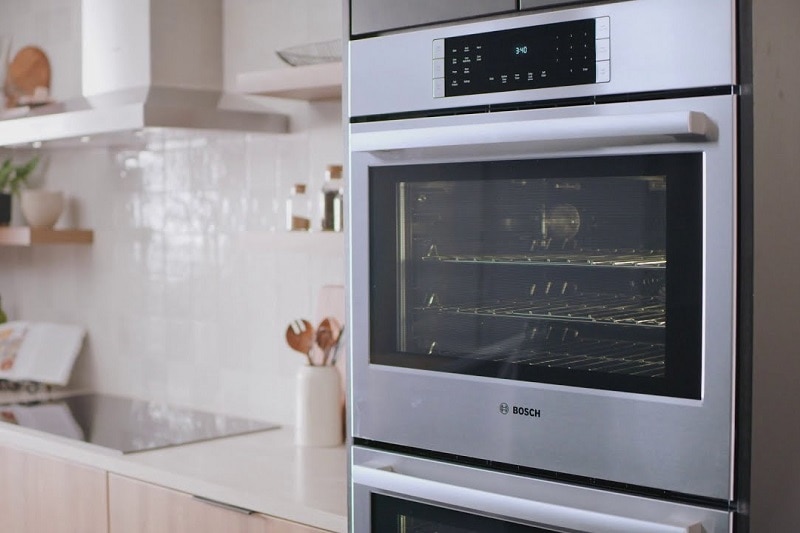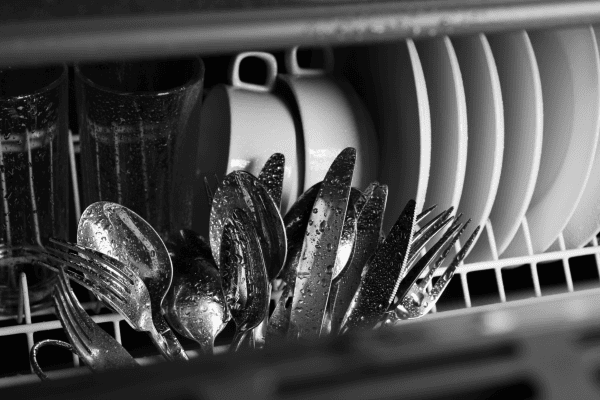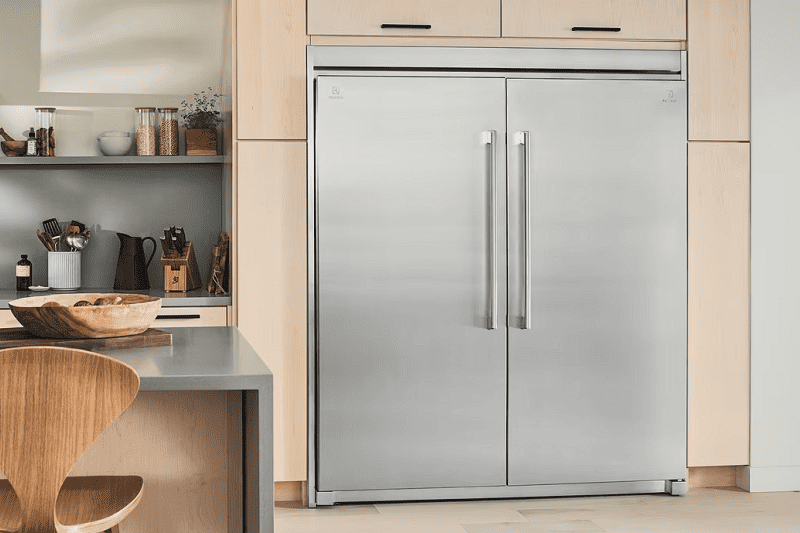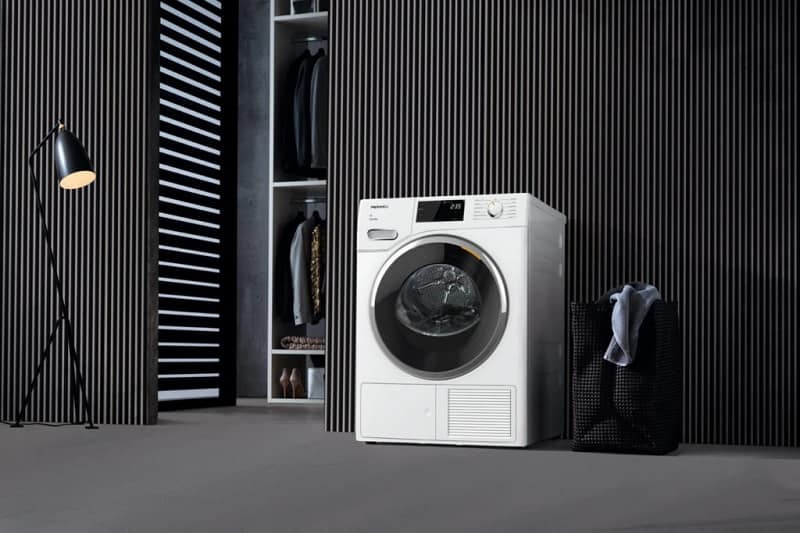Everyone relishes the anticipation of a delicious homemade meal. But what happens when your dependable Bosch oven throws a curveball, and your dishes come out undercooked on one side or charred on the other? If you’re dealing with a Bosch oven not cooking evenly, you’re in the right place. This guide offers a comprehensive exploration of potential causes, troubleshooting steps, and preventive measures.
Why Is My Bosch Oven Not Cooking Evenly?
Modern ovens, be it gas or electric, are feats of engineering but they’re not immune to the occasional hiccup. Let’s delve deeper into the intricacies of what might cause your Bosch oven to misbehave, and how to ensure consistent, mouth-watering results every time.
Not Letting Oven Fully Preheat
Many impatient chefs might rush this critical step, not realizing its impact. Before you start baking or roasting, your oven needs time to heat up uniformly. Putting your dish in too soon can result in unevenly cooked food. Here’s what you should consider:
- Time: Depending on the oven’s age and model, it can take anywhere from 10 to 20 minutes to preheat fully. Trust the process!
- Temperature Fluctuation: Ovens cycle their temperature to maintain an average heat. Allowing the oven to preheat ensures you’re cooking during an optimal cycle.
- Solution: Always wait for the oven’s indicator or a separate oven thermometer to confirm it has reached the desired temperature before placing food inside.
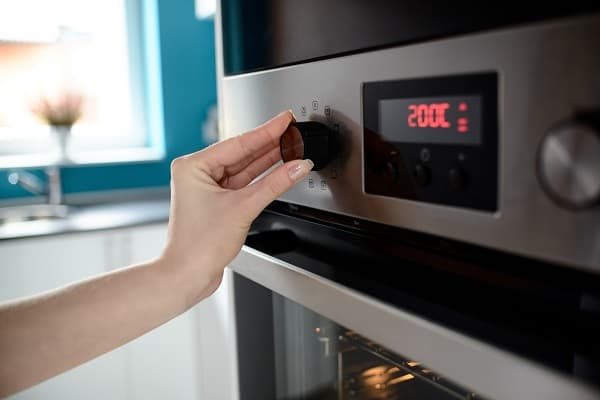
Cooking with the Wrong Type of Bakeware
Believe it or not, the type of bakeware you use can significantly affect the cooking process. Dark or non-shiny bakeware, for instance, can lead to food being overcooked or even burnt on the bottom.
- Material Matters: Glass, metal, ceramic – each has its heat conduction properties. Light-colored or shiny pans tend to reflect heat, while dark pans absorb it.
- Adjustment: If using dark pans, consider reducing the oven temperature by 25°F and check the food early to prevent overcooking.
- Recommendation: Having a mix of bakeware materials in your kitchen arsenal can give you more control based on the dish you’re preparing.
Opening and Closing the Door Too Often
It’s natural to want to check on that mouth-watering lasagna or those tantalizing brownies. However, frequently opening the oven door can lead to significant heat loss, making your Bosch oven bake food unevenly.
- Heat Loss: Each time you open the oven door, you can lose up to 25°F of heat, disturbing the internal temperature and increasing cooking time.
- Visibility: If you’re struggling to see inside, consider cleaning the oven window or using an oven light. It’s a lifesaver and prevents unnecessary door opening.
- Tip: Trust your recipe’s cooking time, and only check food when necessary. Use the oven’s internal light to get a clear view without opening the door.
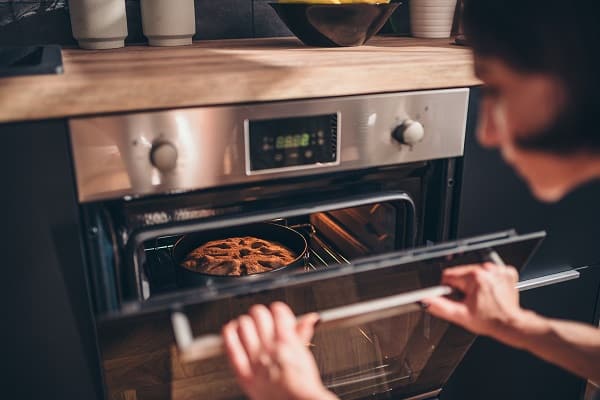
Defective Heating Element
In electric ovens, the heating element is the backbone. If it’s malfunctioning, your dishes may cook unevenly or not at all.
- Inspection: Turn on the oven and look for an even red glow across the heating element. An element that doesn’t glow or only glows in spots might be on its way out.
- Replacement: If the heating element is clearly damaged or shows signs of wear and tear, consider replacing it. While this can be a DIY job, ensure the oven is unplugged, and always prioritize safety.
Convection Fan Isn’t Working
Convection ovens circulate hot air using a fan, promoting even and efficient cooking. If the fan isn’t working, your food might not cook as intended.
- Listen Carefully: If the fan isn’t operating or makes unusual noises, it could be obstructed or faulty.
- Maintenance: Occasionally, debris or built-up grease might obstruct the fan. Regular cleaning and checking for obstructions can prevent this issue.
Temperature Sensor Malfunction
The temperature sensor’s role is pivotal. It gauges the oven’s internal temperature and adjusts the heating elements accordingly.
- Inaccuracy: If your oven feels too hot or too cold, despite what the control panel indicates, it might be a sensor issue.
- Test and Replace: To troubleshoot, you can use an ohmmeter to check the sensor’s resistance. A significant deviation from the 1100 ohms (at room temperature) norm indicates a malfunction, necessitating a replacement.
Need to Recalibrate the Oven
Over time and usage, your oven’s calibration might drift from its original settings, leading to overcooked or undercooked meals.
- Check with an Oven Thermometer: This tool can help you determine if your oven’s internal temperature matches the set temperature.
- Recalibration: If you’re wondering, “How do you recalibrate a Bosch oven?” – consult the user manual. Often, it’s a straightforward process involving holding down specific buttons. If you’re not comfortable calibrating the oven yourself, contact Priority Appliance, your local Bosch repair experts!
If, after all these measures, you’re still faced with a Bosch oven not cooking evenly, it might be time for professional intervention. Contact the local experts at Priority Appliance Service for professional oven repair services. Our expertise might be just what your oven needs!


























